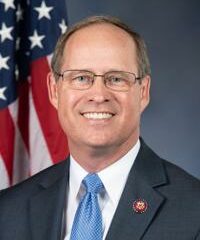(The Center Square) – Larry Keefe has been chosen to lead Florida’s newly created State Board of Immigration Enforcement.
In a Monday meeting, Keefe was named executive director. The board also passed two resolutions.
Gov. Ron DeSantis is chairman of the board that includes the state’s chief financial officer, attorney general and agriculture commissioner. Unanimous consent is required for any actions taken.
Keefe is best known as public safety czar and was also appointed as a U.S. attorney in northern Florida during President Donald Trump’s first term. Keefe was part of DeSantis’ plan to send people illegally in the state to areas of the country with Democrats in power, most famously among them Martha’s Vineyard off the coast of Cape Cod in Massachusetts.
“Larry Keefe is a great public servant who will do a fantastic job with immigration enforcement,” DeSantis said.
Recently sworn-in Attorney General James Uthmeier said at Monday’s meeting that Keefe had already worked with law enforcement leaders statewide on interdiction efforts and “has the relationships, the intellect and undoubtedly, the work ethic to get the job done.”
Legislative leaders chose the sheriffs to represent counties on the State Immigration Enforcement Council on Monday, which will be composed of four sheriffs and six police chiefs and will advise the state’s immigration enforcement board.
Senate President Ben Albritton, R-Wauchula, appointed Pinellas County Sheriff Bob Gualtieri and Polk County Sheriff Grady Judd to the board, while House Speaker Daniel Perez, R-Miami, added Duval County Sheriff T.K. Waters and Charlotte County Sheriff Bill Prummell.
DeSantis and legislative leaders rustled with immigration policy from the end of January until a resolution last week. Monday’s meeting began implementation of a package of bills aligning the state with federal government and immigration enforcement.
Senate Bill 4C and Senate Bill 2C created the State Board of Immigration Enforcement. It acts as a liaison with the U.S. Immigration and Customs Enforcement on enforcement-related issues.
The measures signed into law last week appropriate $250 million to reimburse local law enforcement agencies for their costs to help with immigration enforcement efforts.
The laws mandate criminal penalties for people illegally in the state and would add harsher penalties for subsequent offenses.
For people illegally in the country, there’s a mandatory death penalty for murder or child rape; a ban on taking part in any post-arrest diversion programs; felony charge if voting in state elections; and prohibition of obtaining a driver’s license or identification card from the Department of Highway Safety and Motor Vehicles.











































